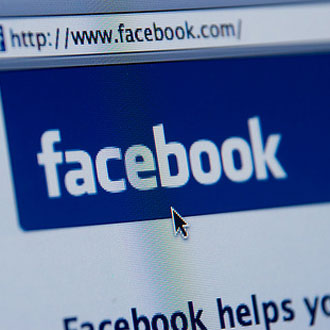Barely a day goes by without a celebrity, sportsperson or MP facing criticism for misguided online behaviour, and social media is not just a minefield for those in the public eye.
The number of GPs seeking advice on the subject is on the rise: the MDU received around eight calls each month from doctors with concerns about Facebook, blogs and other websites this year, compared with about three calls a month in 2011.
Many GPs have embraced social media, recognising its usefulness in sharing ideas with colleagues, communicating with groups of patients and keeping up to date with the latest guidance and trends.1 But there are pitfalls out there for the uninitiated, not least because nothing spreads as quickly as an ill-advised tweet or Facebook post.
In 2013, the GMC issued specific guidance for doctors on using social media.2 After a survey of oncologists under the age of 40, which revealed half had given patients their personal mobile numbers and 14% had accepted them as friends on Facebook, the GMC warned that doctors ‘must consider the risks involved and the impact it could have on the relationship with their patients’.3
Here are a few of the most significant medico-legal pitfalls of using social media, based on member calls to the MDU:
1 Take steps to prevent broaching patient confidentiality
You wouldn’t talk about patients where you might be overheard, and the same principle applies in online communities. Publicly accessible social media sites should never be used to discuss individual patients or their care, even if you think they cannot be identified.
You should also be extremely cautious when using membership-only professional sites such as forums, and beware of ‘jigsaw’ identification where the information in multiple posts can be pieced together to form a clear picture of the patient.
2 Keep doctor-patient relationships professional
Connecting with patients online can blur professional boundaries and, as the survey of oncologists (mentioned above) suggests, this makes it more difficult to make objective clinical decisions and break bad news.
The MDU is notified of between 10 and 30 cases each year where patients have made romantic advances, most commonly towards GPs. These days, such approaches are likely to come via social networking sites. And it can be difficult to rebuff these advances if you have inadvertently ‘encouraged’ the patient by accepting a Facebook friend request, for example.
If a patient contacts you through your private profile, the GMC says ‘you should indicate that you cannot mix social and professional relationships and, where appropriate, direct them to your professional profile’.
3 Avoid rants
It’s not a good idea to use social media to let off steam about a patient or colleague or to get drawn into a tweet war. Even if you have been provoked or believe your words weren’t meant to be taken seriously, other people might have an entirely different view.
Bear in mind that the laws of defamation also apply to online posts. The GMC emphasises: ‘You must not bully, harass or make gratuitous unsubstantiated or unsustainable comments about individuals online.’
4 Review your privacy settings regularly
Before uploading a picture from your practice’s annual Christmas party of all the team toasting a successful year, consider the potential ramifications if it was shared to a wider audience than you intended. Are you happy if a patient or a journalist from a local newspaper sees it?
Although you should still review the privacy settings for each of your social media profiles regularly to control who is seeing your posts, no site can guarantee privacy. Images that have been shared can be difficult to remove and may be distributed further than you intend by other users.
5 Declare any conflicts of interest
A number of non-medical video bloggers (vloggers) have been criticised for using videos to ‘plug’ products and services, without revealing they have been paid to endorse them.
These rules don’t really apply to GPs but in a similar way, the GMC requires you to ‘be open about any conflict of interest and declare any financial or commercial interests in healthcare organisations or pharmaceutical and biomedical companies’.
6 Don’t rely on your anonymity
More generally, the GMC expects you to identify yourself by name if you post as a doctor on publicly accessible social media because the material ‘is likely to be taken on trust and may reasonably be taken to represent the views of the profession more widely’. It is almost always possible for anonymous posts to be traced.
Dr Beverley Ward is a retired GP and a medicolegal adviser at the Medical Defence Union.
References
1 Pulse. Practices turn to Facebook to tackle DNAs. 28 November 2014
2 GMC. Doctors’ use of social media. 2013
3 The Times. Chummy young doctors are bad for your health (£), 24 November 2014. This article was featured as part of ‘Blurring of boundaries in the doctorr-patient relationship ’ by Fallowfield et al, The Lancet Oncology, Volume 15, Issue 13, Pages 1423 – 1424, December 2014 doi:10.1016/S1470-2045(14)71122-2)
4 ASA. Making ads clear: The challenge for advertisers and vloggers. 26 November 2014
Pulse October survey
Take our July 2025 survey to potentially win £1.000 worth of tokens














